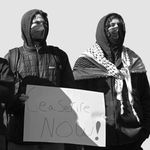“Man-Made Hell On Earth”: A Canadian Doctor on His Medical Mission to Gaza
Warning: This interview contains graphic descriptions of violence and death.
Throughout the past five and a half months, Israel has waged a full-spectrum war against the civilian population of the Gaza Strip. The United States and other Western nations have supplied not only the weapons for this war of annihilation against the Palestinians, but also key political and diplomatic support.
The results of the actions of this coalition of the killing have been devastating. Conservative estimates hold that more than 31,000 Palestinians have been killed, including 13,000 children. More than 8,000 people remain missing, many of them believed to have died in the rubble of buildings destroyed in Israeli attacks. Famine conditions are now present in large swaths of the Gaza Strip.
For months, doctors across Gaza have performed amputations and other high-risk procedures without anesthetics or proper operating rooms. Antibiotics are in short supply and often unavailable. Communicable diseases are spreading, as hundreds of thousands of Palestinians are forced to live in makeshift shelters with little access to toilets or basic sanitary supplies. Israel has repeatedly blocked or delayed aid shipments of vital medical supplies to Gaza. Basic preventative medical care is nearly nonexistent, and medical experts predict that malnutrition will condemn a new generation of young Palestinians to a life of developmental struggles.
The result of the onslaught against medical facilities is that there is only one fully functional hospital remaining in the territory, the European Hospital in Khan Younis. Dr. Yasser Khan, a Canadian ophthalmologist and plastic surgeon, just left Gaza where he spent 10 days at the hospital performing eye surgeries on victims of Israeli attacks. It was his second medical mission to Gaza since the war began last October. On this special Intercepted, Dr. Khan speaks to Jeremy Scahill about what he witnessed.
If you’d like to support our work, go to theintercept.com/join, where your donation, no matter what the amount, makes a real difference.
And if you haven’t already, please subscribe to the show so you can hear it every week. And please go and leave us a rating or a review — it helps people find the show. If you want to give us additional feedback, email us at Podcasts@theintercept.com.
Hosted on Acast. See acast.com/privacy for more information.









